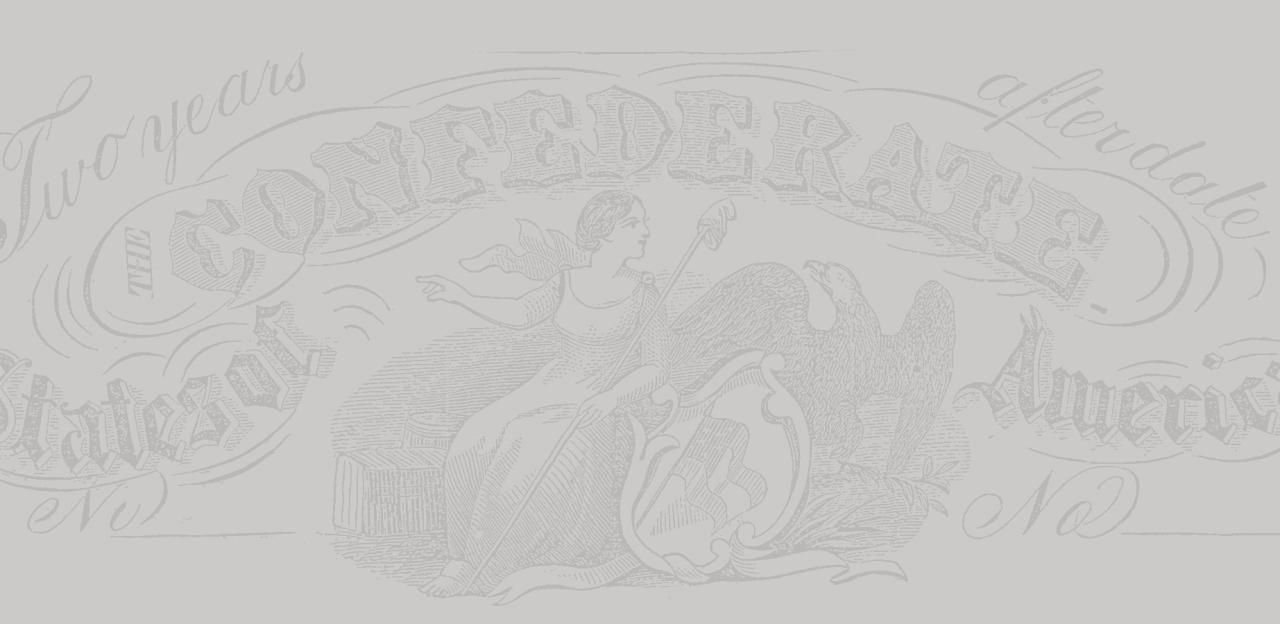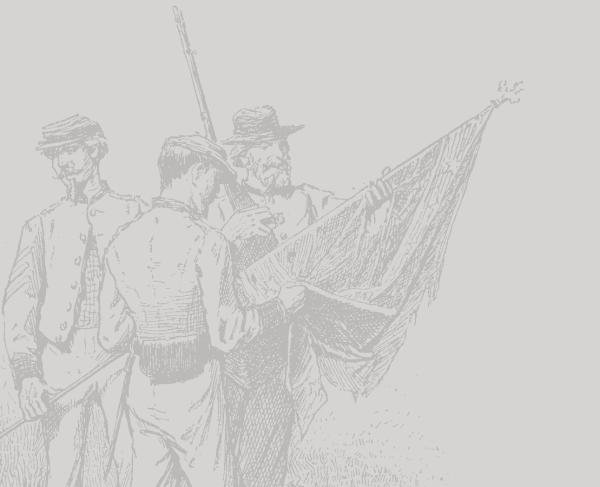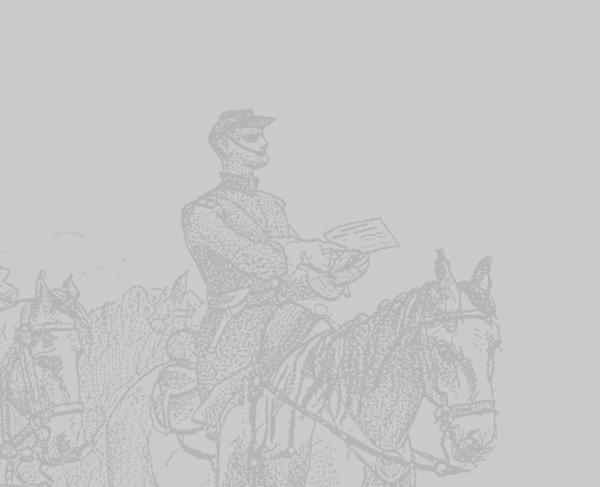An Incident of Rocky Face Ridge

ANDREW M. SEA, Sea's Battery
Thirty years ago the Confederate army of Gen. Joseph E. Johnston was camped in the vicinity of Dalton, Ga., in a fertile and beautiful valley, although destroyed fencing and uncultivated fields indicated the presence of armed men whose trade is destruction and war. A mile north of the town ran a chain of small mountains, called Rocky Face Ridge, which were impassable for horse or vehicle, except at gaps, several of which were within a few miles of Dalton. Across the ridge on the north side lay the Federal army of Gen. Sherman. Several spirited engagements had taken place at Rocky face and Snake Creek Gaps, invariably resulting in an enforced order to “shinny on your own side” to whichever army attempted or temporarily effected a passage of the ridge. After several days of maneuvering and ceaseless vigilance on both sides it became apparent that Gen. Sherman intended forcing a passage through the lower gap, which, if successful, would have turned our left flank and placed his army in our rear, and of course, cut off our communications. But, able soldier as Gen. Sherman was, he had in Gen. Johnston a foeman worthy of his steel; and if the passage had been attempted, the enemy would have found braver and more determined men than defended the pass at Thermopylae. Indeed, nearly our whole army was within striking-distance of the lower gap. To mask his real purpose, Gen. Sherman sent a division of his army under Gen. ----- to make an attack and, if possible, force a passage at the upper gap, some two miles northeast of Dalton. It is to this division my story relates.
My section of artillery was encamped by the side of the main road, which led up the valley and was halfway between Dalton and the gap. The battery boys were lounging about the guns in rather a listless, lazy sort of way, unsuspicious of danger. I was lying under the shade of a small tree, aimlessly gazing across the open ground in my front, when I became interested in the movement of a rapidly approaching horseman. Upon his nearer approach I at once recognized Maj. Gen. S-----, who briefly informed me that a division of Federal troops was driving our small command through the gap, and soon be upon me on its way to capture the town of Dalton and the supplies of our army. He ended his hurried information by ordering me to put my guns in position for action and “fight them to the muzzle of the guns.” Meanwhile he would hurry any command he could find to my support.
Well, this was an eye-opener sure enough! Just think of it! “Fight them to the muzzle of the guns” simply meant to die or be captured in your tracks; sacrifice yourselves and guns to gain a little time, and that, too, absolutely without support. Why the order fairly took my breath. I was not one of those men who never felt the sensation of fear. Still I had hitherto summoned courage enough to go in and stay when comrades were around me and I felt that I had a fair chance; but with two pieces of artillery and without support to fight a division of the enemy flushed with success seemed preposterous. I confess that I was decidedly rebellious, and my thoughts while preparing for action were not the most pleasant. Still the order was peremptory, and left me with no discretion. What could not be helped must be endured.
The enemy did not approach as rapidly as I anticipated, and our little band was disputing every inch of ground; but the firing was perceptibly getting nearer and nearer. Just then my attention was called to another rider coming directly from the front. He was kicking with both feet and beating his jaded horse with his saber-scabbard. He was a badly demoralized, straggling cavalryman. On he came to the battery, and, checking up his horse, breathlessly asked what command that was. Upon being informed, her partially turned in his saddle, and, looking in the direction of the enemy, he said, “Now, d—n you, I reckon you’ll stop!” and away he went, kicking and spurring for dear life. The incident was so supremely ridiculous that my poor boys forgot their own peril in their jeers and laughter. Looking at the figure of the retreating cavalryman, our eyes were gladdened by the sight of a body of infantrymen coming from Dalton at a double-quick, and riding at the head of the column was Gen. Reynolds, who commanded a small brigade of Virginians and North Carolinians. He was a small, delicate-looking man, calm and absolutely fearless; a stouter heart never beat in human breast. These qualities had been apparent on many a bloody field. Early in the war, on Gauley River, W. Va., his splendid judgment and dauntless courage had saved the day, and ever since he had been known as “Old Gauley.” My relief at seeing him may be imagined, and I said: “Well, General, you never saw a man so glad to see another.”
“What, what’s the matter? Had you in a tight place, didn’t they? But it’s all right, Lieutenant. If I can’t take my fleet-footed Virginians and my tarheels and whip any division of Yankees that ever lived, my name ain’t Gauley Reynolds, and I want you to see me do it.”
The absolute confidence of his assertion and his evident eagerness to begin were inspiring and contagious. Asking him if he would take the responsibility of ordering my guns to accompany him, he answered, “Certainly!” and told me to fall in after his first regiment. Very soon the column was thrown into line, and the proper distribution of troops made for the reception of “our friends the enemy.” When our gap-guard, which had been steadily and surely driven before overpowering numbers, came in sight of our line of battle they and we raised a tremendous yell, which was doubtless the first intimation the enemy had of our presence. But they too were veterans, and not to be stopped by yells. On they came, confident and defiant. When they had advanced within forty yards of our line Gen. Reynolds gave the command to fire, and instantly flashes of fire and storms of lead and iron succeeded each other in rapid succession. The enemy recoiled as from the mouth of a volcano. Several times they rallied, but only to meet the same murderous fire. Verily, “h—l had broken loose in Georgia.”
Their loss had been heavy; they knew that they were on our side of the ridge, and they doubtless imagined our force much greater than it was. They fought with less determination, and there was some evidence of confusion in their lines. Gen. Reynolds detected this, and gave the command to charge with the bayonet. Nothing could withstand the impetuosity of that charge, led by the General in person. The enemy gave way in defeat, and utter rout followed. Everything was abandoned in their eagerness to reach the gap, and our victory was complete. What a change within a short hour! Then I fully expected to be butchered or captured at my guns; now I was exultingly pouring shot and shell into the ranks of the beaten foe.
Related Battles
837
600

